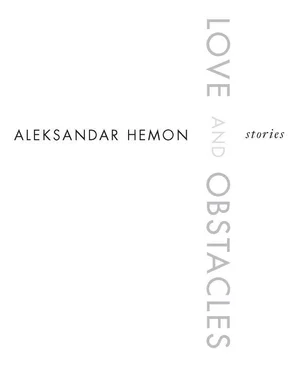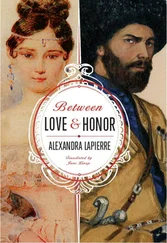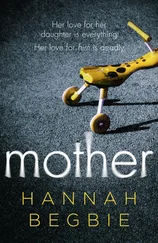Aleksandar Hemon - Love and Obstacles
Здесь есть возможность читать онлайн «Aleksandar Hemon - Love and Obstacles» весь текст электронной книги совершенно бесплатно (целиком полную версию без сокращений). В некоторых случаях можно слушать аудио, скачать через торрент в формате fb2 и присутствует краткое содержание. Издательство: Penguin USA, Inc., Жанр: Старинная литература, на английском языке. Описание произведения, (предисловие) а так же отзывы посетителей доступны на портале библиотеки ЛибКат.
- Название:Love and Obstacles
- Автор:
- Издательство:Penguin USA, Inc.
- Жанр:
- Год:неизвестен
- ISBN:нет данных
- Рейтинг книги:5 / 5. Голосов: 1
-
Избранное:Добавить в избранное
- Отзывы:
-
Ваша оценка:
- 100
- 1
- 2
- 3
- 4
- 5
Love and Obstacles: краткое содержание, описание и аннотация
Предлагаем к чтению аннотацию, описание, краткое содержание или предисловие (зависит от того, что написал сам автор книги «Love and Obstacles»). Если вы не нашли необходимую информацию о книге — напишите в комментариях, мы постараемся отыскать её.
Love and Obstacles — читать онлайн бесплатно полную книгу (весь текст) целиком
Ниже представлен текст книги, разбитый по страницам. Система сохранения места последней прочитанной страницы, позволяет с удобством читать онлайн бесплатно книгу «Love and Obstacles», без необходимости каждый раз заново искать на чём Вы остановились. Поставьте закладку, и сможете в любой момент перейти на страницу, на которой закончили чтение.
Интервал:
Закладка:
I lay in the darkness, unable to move, until I fell asleep. The neon lights in the hall hummed; the elevator thudded going up, coming down. I dreamt of war, of might and right, of utterly unforeseeable logic. I woke up wishing I were home: there would have been the smell of French toast and my father’s aftershave and the banana shampoo my sister liked to use. There would have been the weather forecast on the radio (my parents liked to know the future), my sister pouting because she couldn’t listen to her music show. I would have walked in and derisively submitted myself to my mother’s kiss. Breakfast would have been ready.
I stood up—the pain beginning to set in—and unpacked my mother’s chicken-and-pepper sandwich; it was stale, the pepper mushy and bitter. I turned on the lights, found my notebook, and after biting into the sandwich and staring at the blank page for a long time, wrote a poem that I titled “Love and Obstacles,” the first lines: There are walls between the world and me, / and I have to walk through them.
The following morning I woke up to find my body encrusted in dull, bruisey pain. I went to the store and delivered the money to Stanko. He had a scrubbing-wire beard, veins and sinews bulging on his hands as he counted and recounted the money. I was short a few dinars and told him that I had been robbed on the train; two brazen criminals had emptied my pockets, but had failed to find the rest of the money in my bag. Stanko stared at me until he believed me, then shook his head, appalled by the world that stole from its children. He made a note on the form before him, then showed me where to sign. He shook my hand earnestly and heartily, apparently congratulating me. When he offered me a cigarette, I took it and asked for another one. We smoked examining the freezer chest. Stanko seemed proud of it, as though he himself had created it. It was impressive: enormous, blazing white, and coffinlike in its emptiness; it smelled of clean, subzero death. It should come to us in two or three weeks, he said, and if it didn’t, we should call him.
I slept on the bus and I slept on the night train, waking up only when my stomach started growling, when my body stiffened and started hurting again. I had no money to buy food, so I kept reliving the chicken-and-pepper sandwich and its beautiful smell. Dawn was descending upon earth; my compartment was freezing cold. I saw a horse grazing alone in a field, inexplicably wrapped in nylon; a copse of trees like toothpick tombstones; clouds on the horizon filled by an eternity of tears. When I arrived home, begrimed with having been away, breakfast was waiting.
The same day, Mother washed the denim pants I had worn in Murska Sobota, with the pill in the change pocket disintegrating—nothing was left except a nugget of foil and plastic. The freezer chest arrived after seventeen days. We filled it to the brim: veal and pork, lamb and beef, chicken and peppers. When the war began in the spring of 1992, and electricity in the city of Sarajevo was cut, everything in the freezer chest thawed, rotted in less than a week, and then finally perished.
The Conductor
In the 1989 Anthology of Contemporary Bosnian Poetry, Muhamed D. was represented with four poems. My copy of the anthology disappeared during the war, and I cannot recall the titles, but I do remember the subjects: one of them was about all the minarets of Sarajevo lighting up simultaneously at sunset on a Ramadan day; another was about the deaf Beethoven conducting his Ninth Symphony, unaware of the audience’s ovations until the contralto touched his shoulder and turned him around. I was in my early twenties when the book came out, and compulsively writing poetry every day. I bought the anthology to see where I would fit into the pleiad of Bosnian poets. I thought that Muhamed D.’s poems were silly and fake; his use of Beethoven struck me as pretentious, and his mysticism as alien to my own rock ’n’ roll affectations. But in one of the few reviews the anthology received, the critic raved, in syntax tortured on the rack of platitudes, about the range of Muhamed D.’s poetic skills and the courage he had shown in shedding the primitive Bosnian tradition for more modern forms. “Not only is Muhamed D. the greatest living Bosnian poet,” the reviewer said, “he is the only one who is truly alive.”
I had not managed to get any of my poetry published—nor would I ever manage—but I considered myself a far better, more soulful poet than Muhamed D. I had written about a thousand poems in less than two years, and occasionally I shored those fragments into a book manuscript that I sent to various contests. I can confess, now that I’ve long since stopped writing poetry, that I never really understood what I wrote. I didn’t know what my poems were about, but I believed in them. I liked their titles (“Peter Pan and the Lesbians,” “Love and Obstacles,” et cetera), and I felt that they attained a realm of human innocence and experience that was unknowable, even by me. I delayed showing them to anyone else; I was waiting for readers to evolve, I suppose, to the point where they could grasp the vast spaces of my ego.
I met Muhamed D. for the first time in 1991, at a café called Dom pisaca, or Writers’ Club, adjacent to the offices of the Bosnian Writers’ Association. He was short and stocky, suddenly balding in his mid-forties, his expression frozen in an ugly permanent frown. I shook his hand limply, barely concealing my contempt. He spoke with the clear, provincial inflections of Travnik, his hometown, and was misclad in a dun shirt, brown pants, and an inflammable-green tie. I was a cool-dressed city boy, all denim and T-shirts, born and bred in the purest concrete, skipping vowels and slurring my consonants in a way that cannot even be imitated by anyone who did not grow up inhaling Sarajevo smog. He offered me a seat at his table, and I joined him, along with several of the other anthology veterans, who all wore the suffering faces of the sublime, as though they were forever imprisoned in the lofty dominion of poetry.
For some demented reason, Muhamed D. introduced me to them as a philharmonic orchestra conductor. My objections were drowned out as the other poets started howling the “Ode to Joy” while making conducting gestures, and I was instantly nicknamed “Dirigent”—Conductor—thereby becoming safely and permanently marked as a nonpoet. I stopped trying to correct the mistake as soon as I realized that it didn’t matter: it was my role to be only an audience for their drunken, anthological greatness.
Muhamed D. sat at the head of the Table, governing confidently as they babbled, ranted, sang heartbreaking songs, and went about their bohemian business, guzzling ambrosial beer. I occupied the corner chair, witnessing and waiting, dreaming up put-downs that I would never utter, building up my arrogance while craving their acceptance. Later that night, Muhamed D. demanded that I explain musical notation. “How do you read those dots and flags?” he asked. “And what do you really do with the stick?” Although I had no idea, I tried to come up with some reasonable explanations, if only to expose his ignorance, but he just shook his head in discouragement. Almost every night I spent at the Table, there was a point where I failed to enlighten the poets as to how music was written, thereby confirming their initial assumption that I was a lousy conductor, but a funny guy. I wondered how Muhamed D. could write a poem about Beethoven while being entirely oblivious of the way the damn notation system worked.
But the poets liked me, and I hoped that some of the pretty literature students who frequently served as their muses would like me too. I particularly fancied three of them: Aida, Selma, and Ljilja, all of whom pronounced soft consonants while pouting their moist lips, emitting energy that caused instant erections. I kept trying to get at least one of them away from the Table, so that I could impress her with a recitation of “Love and Obstacles.” Not infrequently, I got sufficiently inebriated to find myself loudly singing a sevdalinka, sending significant glances toward the three muses, and emulating conducting moves for their enjoyment, while a brain-freezing vision of laying all three of them simultaneously twinkled on my horizon. But it never worked out: I couldn’t sing, my conducting was ludicrous, I never recited any of my poems, I wasn’t even published, and instead I had to listen to Muhamed D. singing his sevdalinka with a trembling voice that opened the worlds of permanent dusk, where sorrow reigned and the mere sight of a woman’s neck caused maddening bouts of desire. The eyes of the literature muses would fill with tears, and he could pick whichever volunteer he chose to amuse him for the rest of the night. I’d totter home alone, composing a poem that would show them all that Muhamed D. had nothing on me, that would make Aida, Selma, and Ljilja regret never having let me touch them. I celebrated and sang myself on empty Sarajevo streets, and by the time I had unlocked the door and sneaked into my bed without waking up my poetry-free parents, I would have a masterpiece, so formidable and memorable that I would not bother to write it down. The next morning, I would wake up with my skin oozing a sticky alcoholic sweat and the sappy masterpiece gone forever from my mind. Then I would embark upon a furious series of un-rhymed, anarchic poems, ridiculing Muhamed D. and the Table and the muses in impenetrably coded words, envisioning the devoted scholar who, one day, after decades of exploring my notes and papers, would decode the lines and recognize how tragically misunderstood and unappreciated I was. After writing all day, I’d head off to the Writers’ Club and start the whole process again.
Читать дальшеИнтервал:
Закладка:
Похожие книги на «Love and Obstacles»
Представляем Вашему вниманию похожие книги на «Love and Obstacles» списком для выбора. Мы отобрали схожую по названию и смыслу литературу в надежде предоставить читателям больше вариантов отыскать новые, интересные, ещё непрочитанные произведения.
Обсуждение, отзывы о книге «Love and Obstacles» и просто собственные мнения читателей. Оставьте ваши комментарии, напишите, что Вы думаете о произведении, его смысле или главных героях. Укажите что конкретно понравилось, а что нет, и почему Вы так считаете.












